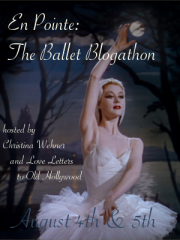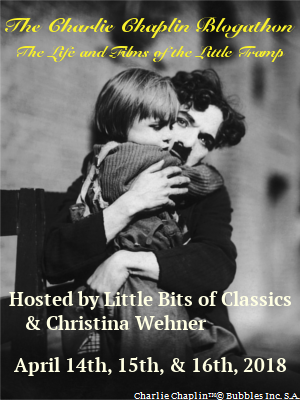A somewhat forgotten book today, it was interesting for me to discover that Rebecca, by Daphne du Maurier, was one of the most successful books of the twentieth century, has been translated into many languages and has never been out of print. It has also been adapted into three film versions, most famously in Alfred Hitchcock’s 1940 version, starring Laurence Olivier, Joan Fontaine and Judith Anderson – a film version that du Maurier reportedly liked. She wrote many other books, several of which were also adapted into movies, but she would always be associated with Rebecca.
However, I might not have heard of Rebecca if I hadn’t watched the movie. I saw the Masterpiece Theater version from 1997 with Charles Dance and Emilia Fox and then I saw Alfred Hitchcock’s version, which I especially have grown to appreciate. It might possibly be my favorite Hitchcock and it is not a typical Hitchcock film. The accuracy is mostly owing to producer David O. Selznick, who believed that if a book were good, it ought to be adapted faithfully. Hitchcock, however, did not like to adhere to his source material; he preferred to use a book or short story as an inspirational spring board for his own vision. He did that with du Maurier’s Jamaica Inn in 1939 and du Maurier was not pleased. But when I began reading Rebecca, I was amazed at how closely the movie follows the book, in spirit, character, events and dialogue.
Of course, the first thing that happened when I sat down and opened the book was that I could hear Joan Fontaine’s voice narrating the opening words, just as she did at the opening of the film, and I could see Hitchcock’s opening scene and it took me forever to get off the first page because I was so busy seeing and hearing the movie. However, once I got going, my reading was much smoother.
Last night I dreamed I went to Manderley again…
The book is narrated in the first person. We never find out the narrator’s first name or maiden name, but know her only as “I,” and Mrs. de Winter. But she is actually the second Mrs. de Winter. The first Mrs. de Winter, Rebecca, was drowned ten months earlier.
She meets Maxim de Winter at a resort in Monte Carlo, where she is a paid companion to a Mrs. Van Hopper. She falls completely and rather desperately in love with him and, like a fairytale, is amazed when he asks her to marry him. But she is not sure if he loves her. She has heard repeatedly about his first wife, Rebecca de Winter, who he is said to have adored.
And when she comes to Manderley, she instantly feels how inadequate she is to the task of being mistress of the house. She feels that people are comparing her to Rebecca and she can see all around her evidence of Rebecca, at her desk, in the west wing of the house that has been shut up. People mention Rebecca frequently, except Maxim, and she hears about her from both the servants and the neighbors; how beautiful Rebecca was, how accomplished she was at all things. Rebecca becomes a constant ghost in the house that the narrator is comparing herself to and she believes Maxim is comparing them, too.
One of the great characters in the book is Mrs. Danvers, the housekeeper. She was played in Hitchcock’s movie by Judith Anderson, who also would be known for playing Lady Macbeth several times, which gives one an idea of what kind of a person Mrs. Danvers is. She is part malign and chilling presence, always prepared to cow Mrs. de Winter and demonstrate how little she has a place in Manderley, and part tragic and pathetic figure who worshipped Rebecca and has been devastated by her loss. She is, from the beginning, an implacable enemy to Mrs. de Winter.
The book is an interesting combination of genres. It is part ghost story, part gothic romance and part psychological study of insecurity and jealousy. Her son, Christian, has said that du Maurier maintained that she was not writing a romance novel, but “a study in jealousy.” The ghost element comes in how Rebecca is, essentially, haunting the house, but she is haunting it in people’s memories and in their minds. The new Mrs. de Winter becomes so obsessed with Rebecca that at one point it completely skews how she is understanding the behavior of others, especially her husband. She becomes convinced that he regrets marrying her and is still grieving for Rebecca.
It is gothic in the mystery regarding Maxim and Rebecca and in the suspense and setting at Manderley, with the sea and the dark woods and the fog and rain and storms. Maxim also strikes me as a classic gothic hero; elegant, impatient, masterful in his treatment of people, and brooding.
But as Daphne du Maurier maintained, it was mostly about jealousy. I think that is a significant reason why the book has an enduring appeal; it taps into something that all people understand. We all know what it’s like to look at another person and think how inadequate we are in comparison to them. It is a story about insecurity and the narrator blames herself, several times, for her own timidity. It prevents her from understanding, both because she is too timid to ask and because her insecurity is distorting her understanding of things.
Daphne du Maurier does a remarkable job of portraying the inner life of Mrs. de Winter. Many people believe that it was partially autobiographical, but whatever the reason, it is almost painful to read at times, because the emotions are very recognizable: the shyness, awkwardness, discomfort with people and the role that she is expected to play as mistress of Manderley. There is the mortification she feels when she accidentally breaks a china cupid and, like a guilty child, tries to hide it only to have Mrs. Danvers accuse another servant so that Mrs. de Winter has to confess it. She is clumsy, her clothes are not chic, her manner shrinking and all the while the servants are looking on. And like many shy people who think inside themselves a lot, she has a tremendous imagination. She is constantly imagining how something is going to turn out or what a group of people are talking about and she draws on experience, expectation and the things she’s read to fill out her inner fantasy. When she believes that Maxim is going to jail, her imagination kicks into gear and she has it all figured out from when they take him away to the last time she will see him before he is executed. The irony is that her flights of imagination are almost always wrong.
Although du Maurier called it a study of jealousy, the book is also an expression of du Maurier’s own love affair with one particular estate called Menabilly, in Cornwall. She first had a sight of it while she was vacationing with her sister and would frequently come back to trespass on the land, once even slipping through a window to wander around the now shut-up house. Later, she received permission to walk on the land and even later rented the place.
Her love of the place is very central to the book. Maxim loves his home and lovingly describes the various scents of the flowers and the gardens and one particular valley and his love plays a central role in his story and is the cause of several of his decisions, unwise ones, that drive the plot.
It’s an interesting book in that a character who is dead should play such an important part of the story. In fact, much of the story is past by the time the book begins. Rebecca was never much admired by the critics, but du Maurier felt that they had missed the point. They took it at face value and didn’t look at it more closely. Most books celebrate, or at least are about, bold and impetuous characters and I’ve never particularly identified with them. Rebecca goes a little farther. It gives a wonderful portrayal of the inner life of a shy and insecure person and how they view the world.











littlealmond
October 6, 2014 at 6:18 pm
I was so excited that you chose to write about this novel! It’s one of my absolute all-time favorites. I’ve read reviews of the atrocious sequels and a disturbing amount of attention has been given to Rebecca herself as the more sympathetic and interesting character, particularly for her, shall we say, flamboyant sexuality. So many readers complain that the second Mrs. de Winter has no personality. But the novel’s not about sexuality. It’s about introversion, in addition to the theme of jealousy. “It gives a wonderful portrayal of the inner life of a shy and insecure person and how they view the world.” Absolutely! So wonderful to read your thoughts.
LikeLike
christinawehner
October 6, 2014 at 7:47 pm
Thank you so much! I’m so glad you enjoyed it. That’s really disappointing to hear how fixated people are with the first Mrs. de Winter! I hadn’t realized that.
I think you’ve brought up a fascinating topic; how some people seem to be always fascinated with the “flamboyant” character and deride the quiet one.
I’ve been recently watching a lot of Joan Fontaine movies and reading reviews of her movies. She specialized in playing roles like the second Mrs. de Winter and I’ve read quite often about how certain people think those kinds of roles are no longer viable in the modern age! I can’t figure that out at all! Do they mean that modern books and films should not be about a person who is insecure or introverted, or are they simply assuming that in this modern age of liberation women are no longer insecure or introverted? It’s very puzzling.
LikeLike
littlealmond
October 7, 2014 at 3:39 pm
I happened to be watching “Suspicion” a few months ago with Joan Fontaine and Cary Grant, which is a movie that has its similarities to “Rebecca,” and I think that character comes across as weak, submissive, and unassertive; she has trouble standing up to her husband and ends up smiling weakly as she watches him lose his job, schmooze money, etc.
According to Freudian psychology, Joan’s characters are most likely repressed and need to come to terms with their sexual desires; a peculiar and possibly inaccurate simplification.
A number of books I’ve read on clinical depression talk about introversion and sensitivity as weaknesses to overcome in order to live a more fulfilling life. I’m pretty sure Richard O’Connors makes a statement along such lines in his (otherwise helpful) book “Overcoming Depression,” that introversion can be overcome by changing the way we think.
LikeLike
christinawehner
October 7, 2014 at 9:45 pm
It does seem like introversion is so often mistaken for repression or weakness. I definitely agree that Fontaine portrays a much weaker character in Suspicion! Mrs. de Winter, in both the movie and the book, has more character arc, but I think that is the point of Suspicion, that she doesn’t have the arc and always gives in to Grant. From what I read, it seems Hitchcock was going for the repression aspect in Suspicion, but I don’t think he was in Rebecca. I don’t really see repression as being a part of the book, though. I think that is why I so enjoyed the book. I’d never read a book where I was able to enter so well into the feelings of the narrator.
LikeLike
FictionFan
October 8, 2014 at 9:33 am
I love the way du Maurier veers towards the supernatural in her stories without ever actually crossing the line. There is always a rational explanation – the horror is always ultimately explainable by the psychological state of the victim. In this one, Rebecca is ‘there’, haunting every person, but by force of memory not some kind of spiritualism. Much more effective for building atmosphere in my view.
LikeLike
christinawehner
October 8, 2014 at 11:02 pm
Great point! It was very compelling, how it was not just about people reacting to a ghost, but contributing to the existence and continuance of the ‘ghost’ by their own behavior, imagination and memory.
This was my first book by du Maurier, but I am now curious to read more!
LikeLike
FictionFan
October 9, 2014 at 6:16 am
I read ‘The Birds and Other Stories’ recently – all sort of horror stories but with the same might be/might not be supernatural feel. Some of them were really great – images that have stayed in my head. And it was interesting to see the differences between her version of ‘The Birds’ and Hitchcock’s.
LikeLike
christinawehner
October 9, 2014 at 2:41 pm
Wow, I didn’t realize that du Maurier wrote “The Birds.” Hitchcock seems to have adapted a number of her movies; I think he did Jamaica Inn, too.
LikeLike
Gretchen Van Benthuysen
March 16, 2015 at 12:55 pm
Very interesting analysis of the book. For readers of “Rebecca,” “Jane Eyre,” “Great Expectations” and English lit in general, I would love to introduce you to Jasper Fforde’s Thursday Next series. It’s remarkable. Much of it takes place in an alternative universe based on books. Well, actually in Wales, where Fforde is from and some say is a place not like the rest of the world at all. But I digress. The books focus on literary detective Thursday Next, who works for Jurisfiction, the policing agency that works inside fiction. She “enters” the book world and meets Miss Haversham, Mr. Rochester and the evil Mrs. Danvers, of which there are many. Start with “The Eyre Affair” and work your way through one of the most delightful and fascinating book series I’ve ever encountered. Wikipedia info here: http://en.wikipedia.org/wiki/Jasper_Fforde. Ford’s website here:
LikeLike
christinawehner
March 16, 2015 at 1:19 pm
Wow, he sounds completely delightful…and very original! I love books like Jane Eyre and Great Expectations, and almost all English Lit. Thanks so much for sharing! I definitely need to read all these. 🙂
LikeLike
Gretchen Van Benthuysen
March 16, 2015 at 12:58 pm
Whoops, Fforde’s website: http://www.jasperfforde.com/subindex/tn_index.html
LikeLike
carygrantwonteatyou
May 16, 2015 at 6:12 pm
I read a lot of Du Maurier as a kid, and didn’t at first like Rebecca. I preferred the strong heroines of Frenchman’s Creek and Jamaica Inn, and the eeriness of My Cousin Rachel and House on the Strand. But as an adult, I found Rebecca fascinating. The narrator’s insecurity and jealousy are so understandable–though Maxim, I think, grows less sympathetic with each reading:) My Cousin Rachel is a pretty good adaptation of her book, but I’ve never seen Don’t Look Now. Her short stories are underrated overall–so many are good (“The Birds” wasn’t even a favorite). I second the recommendation of the Thursday Next series–very different from Du Maurier, but so much fun!
LikeLiked by 1 person
christinawehner
May 16, 2015 at 6:48 pm
I do agree; Maxim is not very sympathetic: overbearing, not sensitive to his second wife’s insecurities, wrapped up in himself and his own problems. I’ve always been fascinated, though, by shy and insecure heroines, like Fanny Price from Mansfield Park. They seem to inspire in me a feeling of protectiveness and sympathy.
Rebecca was my first Du Maurier, but I just saw My Cousin Rachel and liked it a lot and want to read the book next. I sometimes have trouble deciding to read short stories, but you are the second person to mention Du Maurier’s so I will have to give them a try.
Will have to try the Thursday Next books, too. Why aren’t there more hours in the day for reading?!
LikeLiked by 1 person
carygrantwonteatyou
May 17, 2015 at 3:17 am
I agree. Fanny and those like her are never appreciated enough. We can’t all be Elizabeth Bennetts. It isn’t surprising really in a culture like ours, where being outgoing is valued so highly. I keep meaning to read that book on introverts that came out a few years ago (speaking of not enough time for reading:))
LikeLiked by 1 person
christinawehner
May 17, 2015 at 1:48 pm
I wonder if introverts are more challenging to write about, too. Especially since conventional wisdom in writing now seems to be “show, don’t tell,” but if you have a lead who doesn’t talk much, that is more difficult. It worked well in Rebecca, I think, partially because it was in first person and she could tell us her inner experience.
LikeLike